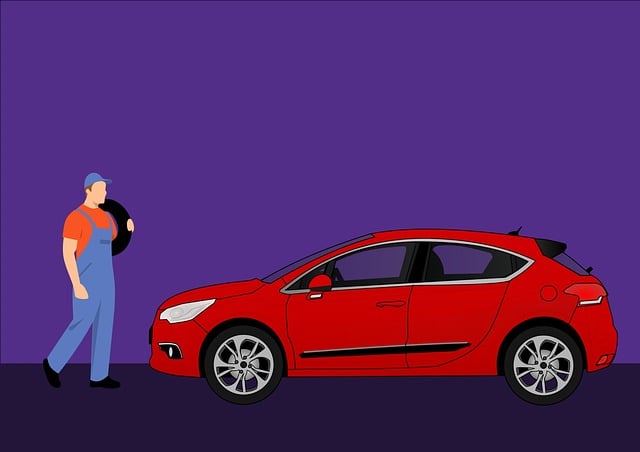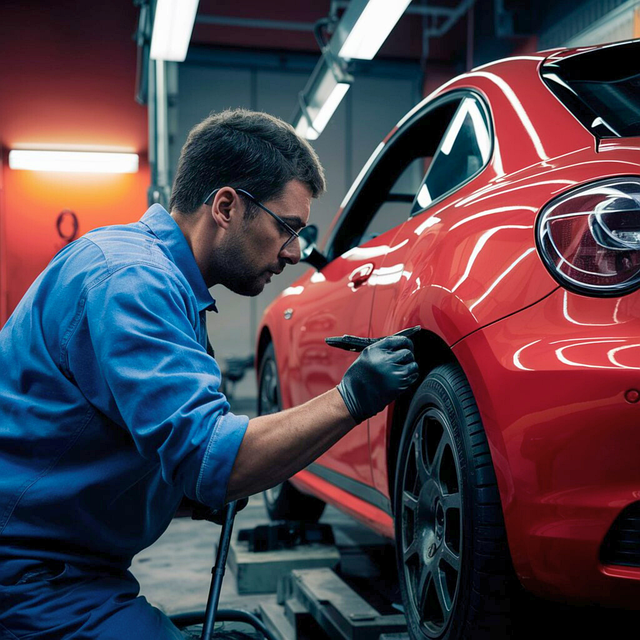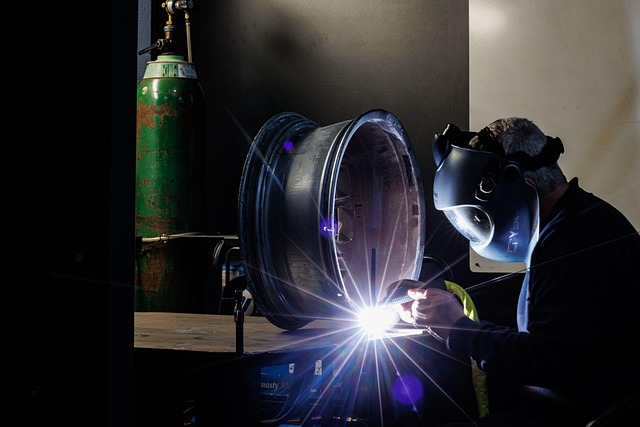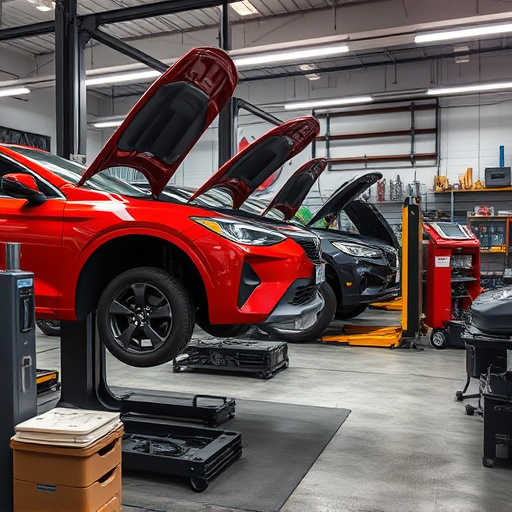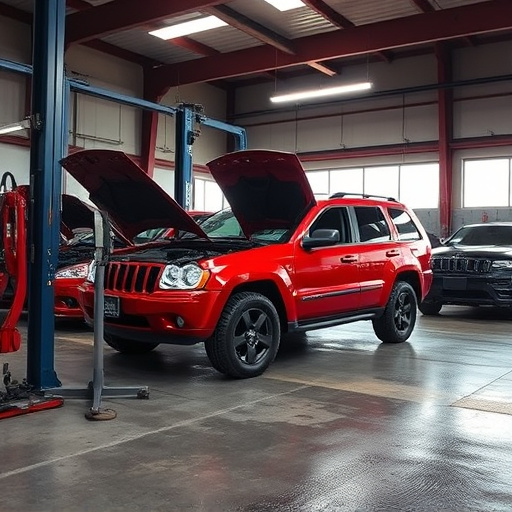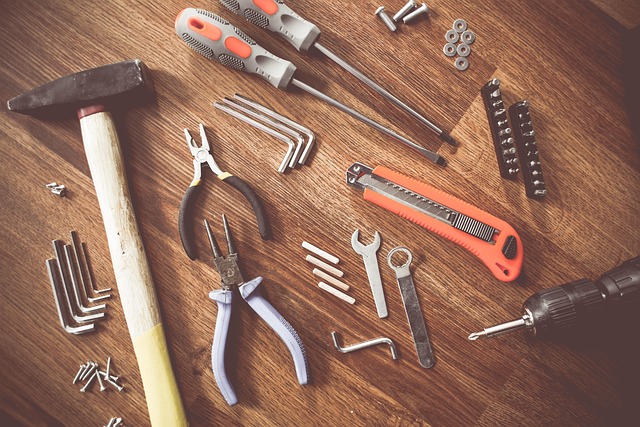Repair Quality Verification (RQV) is a vital process in collision repair shops, ensuring vehicle safety and structural integrity. Skilled technicians perform meticulous inspections, addressing physical damage through auto dent repair and assessing critical systems like brakes, suspension, and lighting. RQV involves rigorous quality control checks on parts and repairs, upholding stringent safety standards to guarantee restored vehicles meet the same reliable and secure standards as new ones. This critical component enhances road safety, prevents subpar work, and reduces traffic accidents, fatalities, and injuries, ultimately safeguarding all road users.
In the automotive industry, ensuring safe vehicle restoration is paramount. Repair Quality Verification (RQV) serves as the cornerstone, meticulously inspecting repaired vehicles to meet safety standards. This comprehensive process involves specialized technicians who scrutinize every component, from structural integrity to system functionality. By implementing RQV, garages maintain high-quality repairs, protect drivers, and safeguard the roadway. Discover how rigorous verification benefits both vehicle owners and the broader community by minimizing risks and enhancing road safety.
- Understanding Repair Quality Verification: The Foundation of Safe Restoration
- Key Roles and Processes in Ensuring Vehicle Safety After Repairs
- Benefits of Rigorous Verification: Protecting Drivers and the Roadway
Understanding Repair Quality Verification: The Foundation of Safe Restoration
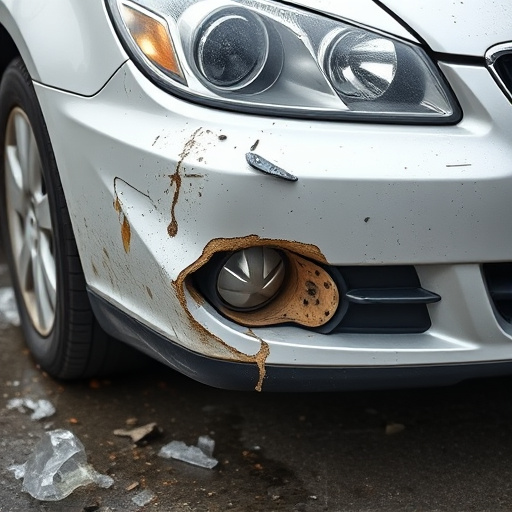
Repair Quality Verification is the cornerstone ensuring safe vehicle restoration. It involves a meticulous process where professionals inspect every detail of a repaired vehicle, verifying that it meets stringent safety standards and industry best practices. This isn’t merely about checking boxes; it’s a comprehensive assessment that includes structural integrity, paint job precision, and the functionality of all systems, from brakes to lighting.
In any collision repair shop or auto collision center, this verification process is crucial. It safeguards drivers and passengers by preventing subpar repairs that could compromise safety. By adopting robust repair quality verification practices, car collision repair experts demonstrate their commitment to not just fixing vehicles but restoring them to their pre-accident condition – or even better – ensuring peace of mind for everyone on the road.
Key Roles and Processes in Ensuring Vehicle Safety After Repairs
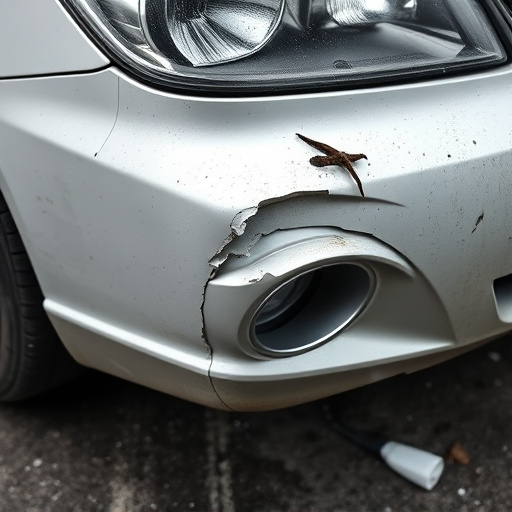
In the intricate process of vehicle restoration, ensuring safety is paramount. This involves a meticulous interplay between several key roles and processes, all centred around robust repair quality verification. Skilled technicians, equipped with knowledge and tools for auto dent repair and other specialized tasks, play a crucial role in restoring damaged vehicle bodywork. They not only fix physical imperfections but also perform safety checks to ensure components like brakes, suspension, and lighting systems function optimally.
Effective repair quality verification doesn’t end at technical proficiency. It encompasses rigorous quality control measures that verify the suitability of replacement parts and the accuracy of repairs. This involves inspecting welds, paint jobs, and structural integrity, among other aspects of vehicle repair. By adhering to stringent safety standards throughout these processes, professionals in the auto industry contribute significantly to road safety, ensuring restored vehicles are as reliable and secure as new ones.
Benefits of Rigorous Verification: Protecting Drivers and the Roadway
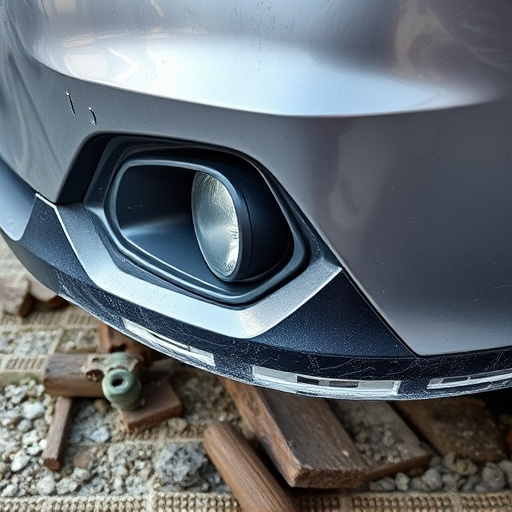
Rigorous repair quality verification plays a pivotal role in safeguarding drivers and enhancing roadway safety. By implementing meticulous processes to assess the quality of restoration work, especially in complex cases like car body restoration, mechanics can ensure that every component is accurately repaired or replaced. This attention to detail is paramount, as subpar repairs could lead to catastrophic failures, putting lives at risk.
In the realm of car repair services, including specialized Mercedes Benz repair, verification acts as a quality control measure. It prevents the proliferation of unsafe vehicles on the road, ensuring that each car meets stringent safety standards. This proactive approach not only protects drivers but also contributes to reducing traffic accidents and their associated fatalities and injuries.
Repair Quality Verification (RQV) is an indispensable process that safeguards drivers and roadways by ensuring vehicle safety after repairs. By meticulously inspecting and verifying each step of the restoration process, RQV identifies potential flaws and ensures adherence to industry standards. This holistic approach fosters confidence in the vehicle’s structural integrity, preventing accidents and promoting peace of mind for every traveler on the road.
